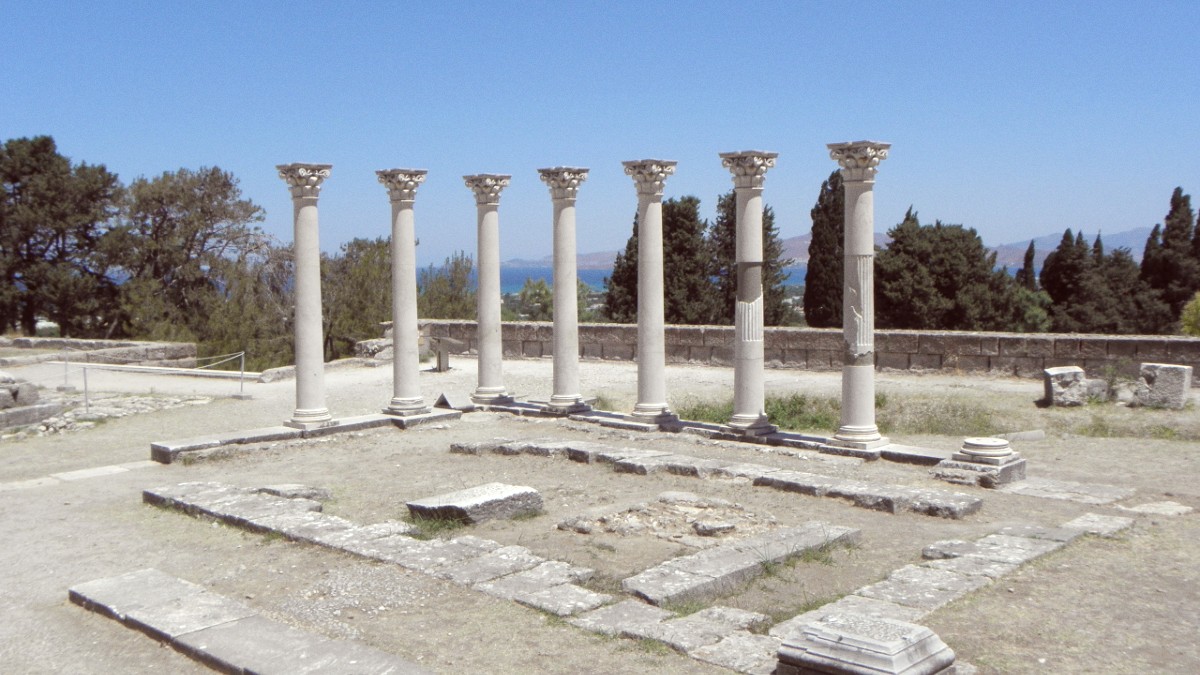
Dodecanese, Greece
Climate Patterns: Spring (April-May) averages 15-22°C (59-72°F) with low precipitation. Summer (June-August) brings 25-35°C (77-95°F), very dry with abundant sunshine, often with a cooling "Meltemi" breeze. Autumn (September-October) averages 20-28°C (68-82°F), remaining pleasant. Winter (November-March) sees 10-15°C (50-59°F) with higher precipitation.
Seasonal Analysis: High Season (July-August) has the hottest weather and full facility operation but also crowds and highest prices. Shoulder Season (May-June, September-October) offers pleasant temperatures, fewer crowds, and competitive prices, suitable for sightseeing and mild weather activities. Low Season (November-April) has very few tourists and lowest prices, but many facilities are closed and weather is unpredictable.
Greece, a Schengen Area member, adheres to common visa and entry regulations. Non-EU/EEA/Swiss citizens typically require a Schengen visa for stays up to 90 days. For stays over 90 days, a long-stay (national) visa is necessary, applied at the Greek embassy in your home country.
Passport validity for at least three months beyond departure, issued within 10 years, with two blank pages. Proof of sufficient funds, accommodation, and travel insurance are important. A return or onward ticket is also part of the requirements. No general entry fees for tourists. Immigration occurs at all ports of entry. EES and ETIAS systems are future implementations, currently not active.
Important items for entry
Passport valid for 3 months beyond departure, 2 blank pages. Visa (if applicable) documentation.
Proof of funds, accommodation, travel insurance, and onward/return ticket.
Activities requiring extra permission
No special permits for typical tourist activities like beaches, water sports, or town exploration.
Professional photography or large-scale event organization require consulting local authorities for permits.
Current health-related entry rules
As of early 2024, Greece has no specific health entry requirements for most international travelers.
Routine vaccinations for Europe should be current. Consult a healthcare professional for personalized advice.
The Euro (€) is the official currency. ATMs are widely available in Kos Town and major resorts. Visa and MasterCard are broadly accepted. Carrying some cash for small purchases, family-run tavernas, and remote villages is advisable. Currency exchange offices often offer less favorable rates than ATMs. Inform your bank about travel plans to prevent card issues.
Tipping is not mandatory but appreciated. Round up the bill or leave 5-10% for good service in restaurants. For taxis, round up the fare. For hotel housekeeping, €1-€2 per day is customary. For bellhops, €1-€2 per bag. Tour guides might get €5-€20 per person based on service and tour length.
€40-€70 (hostel/basic studio, street food, local buses, free beaches).
€80-€150 (mid-range hotel, tavernas, occasional taxis/car rental, paid attractions).
€180+ (boutique hotel/resort, fine dining, private transfers, exclusive experiences).
Hostel bed: €20-€35. Budget studio: €40-€70. Mid-range hotel: €70-€150. Luxury resort: €150-€500+.
Gyros: €3.50-€5. Lunch: €10-€18. Dinner: €20-€40. Coffee: €3-€5. Beer: €4-€6. Water: €0.50-€3.
Kos is a generally safe destination with low crime rates. Greece is located in an active seismic zone; minor tremors are common. Wildfire risk increases during hot, dry summer months. Flash floods are possible during heavy rain in winter.
Sunburn and heatstroke are risks in summer. Always use high-SPF sunscreen, wear hats, and seek shade. Stay hydrated. Mosquitoes are common in evenings; use insect repellent. Sea urchins may be on rocky seabeds; wear water shoes. Food and waterborne illness risk is generally low in established places.
The General Hospital of Kos, in Kos Town, provides emergency and general medical services. Several private clinics operate across the island. Pharmacies are widely available, identifiable by a green cross, and provide advice for minor ailments. The European emergency number is 112 for police, ambulance, and fire services.
Below are typical price ranges for various services and goods on Kos.
Affiliate resources for planning your trip to Kos, Greece.
Visa Services: streamline your application process.
Travel Insurance: secure your journey with comprehensive coverage.
Insurance designed for digital nomads and remote teams.
Note: Fixed commission ($1.5-150).
Medical and travel-related coverage for foreigners visiting the United States.
Note: 30 days cookie duration.
Assistance for passengers to receive compensation for delayed or canceled flights.
Note: 15-16.6% commission, 45 days cookie.
| Category | Resource | Description |
|---|---|---|
| Water Filtration | LifeStraw | Consumer site for portable water filtration products. |
| First Aid | Adventure Medical Kits | First aid supplies tailored for travelers and outdoor activities. |
| Anti-Theft | Pacsafe | Anti-theft bags and travel security products. |